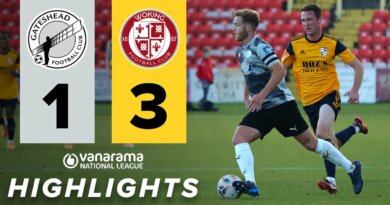Sir Bob Murray reflects on his best year at Sunderland
Sir Bob Murray says the 1998-99 season – and a rollercoaster journey from the low of a Wembley near-miss to the high of winning the Championship – was his “happiest year” as Sunderland chairman.
But possibly the proudest achievement in his now almost four-decade association with his boyhood team only arrived in 2018 with the opening of the Beacon of Light – a building he says keeps him and the club’s current owner “joined at the hip”.
Murray regards the breathless period between 1997 and 2001 – which saw relegation, a stadium move, a play-off final defeat, record-breaking title-winning season and two seventh-placed Premier League finishes – as the most memorable period of his 20 years as Sunderland chairman.
Having built and opened the Stadium of Light in 1997 in the wake of dropping out of the Premier League, the Black Cats went within a couple of penalty kicks of bouncing straight back up via the Championship play-off final.
But from the ashes of that agonising finale against Charlton at Wembley sparked the resolve to go one better 12 months later.
“We obviously did amazing to get the team together {after relegation in 1997}, and at the play-off final we were all mentally gutted,” said Murray.
“But we decided immediately after the game that nobody was going to leave that club.
“And the next year was the happiest year of my reign when we got 100-plus points. That team proved they could play in the Premier League; it was amazing.”
What followed was just as memorable, with Peter Reid’s men mixing it with the country’s biggest clubs and securing the two highest-placed league finishes in Sunderland’s modern-day history.
But while also proud of being a top seven club in both 1999-2000 and 2000-01, those seasons did leave Murray with lingering regrets that he and Reid just failed to stretch fans’ horizons a little further.
“We should have done better because we were first or second in the Premier League at Christmas and we didn’t make Europe,” added the former chairman, speaking in an exclusive interview to mark the launch of his new autobiography, “I’D Do It All Again”.
“It’s always been an aspiration to make Europe. I felt I missed out there, so it’s tinged with a bit of sadness.
The Stadium of Light remains another huge legacy of Murray’s time in charge.
On the decision to leave Sunderland’s beloved home at Roker Park, Murray reflected: “When I went to the club in 1986, I didn’t think I’d need a new stadium, but Heysel, Hillsborough and Bradford happened, and it was about to happen all over the place to be truthful.
“It was mandatory to be an all-seater, or we couldn’t have a safety licence, which you needed.
“At Roker Park we were down to 23,000 capacity, and we went to the Premiership and sold out twice in a year.
“Obviously, I realised that the infrastructure of the club was totally inadequate in every way, and we needed to have a proper stadium to compete.”
But another equally impressive monument to Murray now exists alongside the Stadium of Light, with the Beacon of Light having opened in 2018.
Having founded Sunderland’s official club charity, the Foundation of Light, in 2001, Murray always dreamt of creating a home for it neighbouring the stadium he also built.
Now, the Beacon of Light is a sports, community and education facility used by around 350,000 people from across Wearside each year.
“It just so happens to be the best in Europe and it’s in Sunderland,” said Murray. “Everyone who comes through the door goes ‘wow!’.
“In 2010 we had the idea to build this, we now get 7000 people a week coming in, and have 46 different schemes here.”
“I made the charity totally separate from the club. It has no connection other than the badge. But the chairman of the club is allowed to be a trustee, and now under this chairmanship we’re very close with Kyril {Louis-Dreyfus, the current Sunderland owner), so we work together and try and help each other.
“We are basically joined at the hip.“
Sir Bob Murray’s autobiography, “I’d Do It All Again” is available now, published by Vision Sports Publishing.




